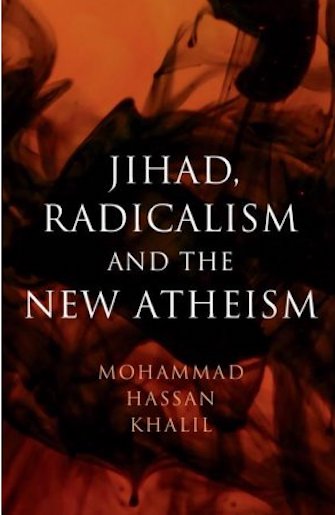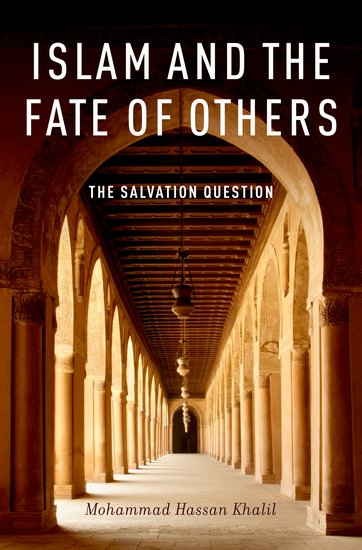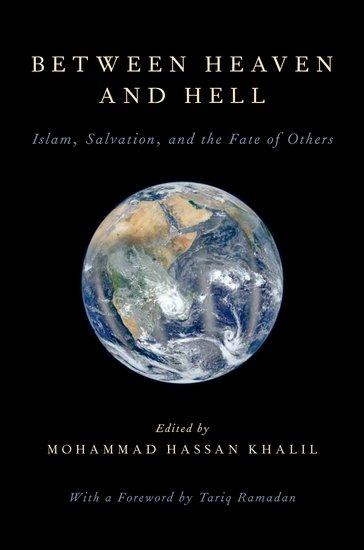Books

Jihad, Radicalism, and the New Atheism
(New York: Cambridge University Press, 2018)
Is Islam fundamentally violent? For influential New Atheists such as Sam Harris, Ayaan Hirsi Ali, and Richard Dawkins, the answer is an emphatic yes, largely because of the Islamic doctrine of jihad. According to this view, when al-Qaeda plotted 9/11 or ISIS planned any one of its recent terrorist attacks, they were acting in accord with Islamic scripture. Jihad, Radicalism, and the New Atheism scrutinizes this claim by comparing the conflicting interpretations of jihad offered by mainstream Muslim scholars, violent Muslim radicals, and New Atheists. Mohammad Hassan Khalil considers contemporary Muslim terrorism to be a grave problem that we must now confront. He shows, however, that the explanations offered for this phenomenon by the New Atheists are highly problematic, and that their own interpretations of the role of violence in Islam exceed those of even radicals such as Osama bin Laden. In showing all of this, Khalil offers critical insights on a most pressing issue.

Islam and the Fate of Others: The Salvation Question
(New York: Oxford University Press, 2012)
Can non-Muslims be saved? And can those who are damned to Hell ever be redeemed? This book examines the writings of important medieval and modern Muslim scholars on the controversial question of non-Muslim salvation. The book pays considerable attention to four of the most prominent figures in the history of Islam: al-Ghazali, Ibn ‘Arabi, Ibn Taymiyya, and Rashid Rida. Also examined are works by a wide variety of other writers, from Ibn Qayyim al-Jawziyya to Mulla Sadra to Shah Wali Allah of Delhi to Muhammad ‘Ali of Lahore to Sayyid Qutb to Yusuf al-Qaradawi to Farid Esack to yet others. The book demonstrates that although the influential theologians featured in this book tended to shun a truly pluralistic conception of salvation, most envisioned a Paradise populated with non-Muslims—and a God of justice and, more significantly, mercy. Their sundry interpretations of the Qur’an and hadith corpus—from optimistic depictions of Judgment Day to notions of a temporal Hell and salvation for all—challenge commonly held assumptions about Islamic scripture and thought.

Between Heaven and Hell: Islam, Salvation, and the Fate of Others
(New York: Oxford University Press, 2013)
In this groundbreaking volume, eminent and up-and-coming scholars, representing a diversity of backgrounds and viewpoints, address the question of non-Muslim salvation: according to the Islamic ethos (however understood), what can be said about the status and fate of non-Muslims? Each of the volume’s contributors responds to this often asked “salvation question”—a question with profound theological and practical implications—from different angles: while some limit themselves to its historical dimensions, others approach it as theologians and philosophers, yet others focus on the relationship between this-worldly relations with Others and next-worldly conceptions of salvation. Individually and collectively, the essays comprising this volume advance the discourse on religious diversity and our understanding of Islamic thought and Muslim societies. Between Heaven and Hell is possibly the first ever multi-authored volume on salvation in Islamic thought, at least in English. It does not conclude with neat resolutions; instead, it offers fascinating expositions, debates, and points of departure for further contemplation. Aside from the editor of the volume, Mohammad Hassan Khalil, and the author of the foreword, Tariq Ramadan, the contributors include William C. Chittick, Farid Esack, Mohammad Fadel, David M. Freidenreich, Marcia Hermansen, Jerusha Lamptey, Bruce B. Lawrence, Muhammad Legenhausen, Yasir Qadhi, A. Kevin Reinhart, Sajjad Rizvi, Reza Shah-Kazemi, and Tim Winter.
